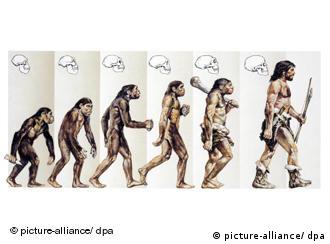I don't know why you seem to have such a hard time understanding me.
I understand. You're concerned that there are many cases where it's unclear whether two populations are a single species or two different ones. As Darwin wrote, evolution would require that such case exist, and indeed, his prediction has been confirmed. It's a huge problem for creationism, since it requires that such things don't exist. I'm aware that some creationists have changed their doctrines to allow for a certain amount of evolution, perhaps up to the family level. However, that brings in its own problems, since it supposes some kind of imaginary barrier to variation that no one can find.
In evolutionary theory, there are no discrete things as species; they are merely categories that involve reproductive isolation of genes. Hence, evolution could change the genes of two populations to prevent them from reproducing with each other, or could also change the genes of two species to make them able to reproduce with each other (much less likely).
You might want to read Darwin's book, or (although quotes can lead you deeply astray, if you don't get the context) you could go here.
http://www.ucl.ac.uk/taxome/jim/Mim/darwin_on_spp.html
I'm not talking about defining whether a specific individual is the same or different species than another idividual, but simply what the word means.
What does "success" mean? Are there any cases where it might be difficult to say whether a venture was a success or a failure? If so, does that mean "success" is not a useful word? "Species", when applied to sexually-reproducing organisms, is a population of interbreeding individuals. As a graduate bacteriologist, I can tell you that it's hugely more complicated with bacteria, and my 1988 Bergey's Manual is useful only as an historical curiosity these days. Molecular genetics and gene sequencing pretty much turned things upside down.
If you can't define the word, then the word is useless, as people you talk to can never be sure what you mean.
As you see, it's a useful word, but like "success", depends on things.
Suppose you have a quizzleblorg and a gortzin. Could you tell which is which?
First, we'd make sure that they wouldn't mate in nature and produce viable offspring. Then gene sequencing, to see how close they are. If they turn out to be reproductively isolated in nature, we'd know they were species. Otherwise, they would likely be subspecies, perhaps in the process of speciation.








